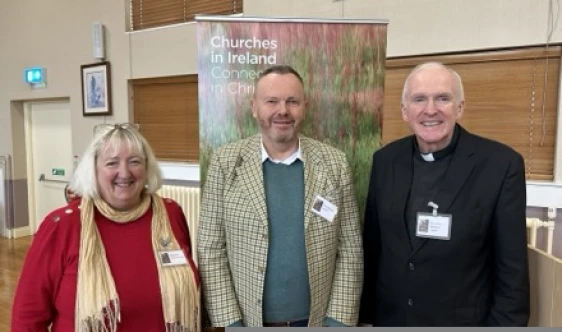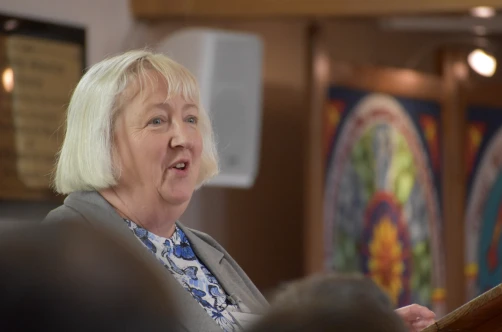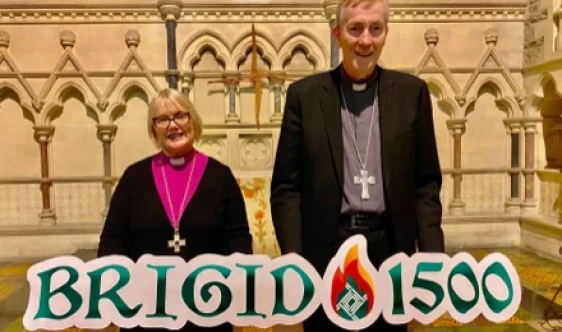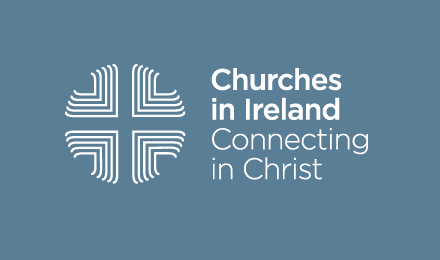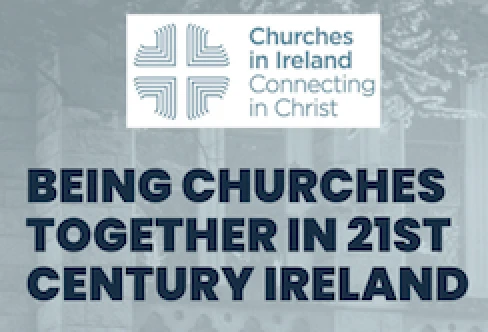
In the final of a series of blog articles, Dr Fergus O’Ferrall makes the case for a new and fundamental ecumenical reformation in, and by, our Churches focused on concepts such as reconciliation, forgiveness, justice, peace and human flourishing as we seek to break the bondage to the past and to create hope for a shared and flourishing future.
It appears that many simply hope for peaceful co–existence between two segregated and politically divided communities in Northern Ireland– a sort of ‘balkanisation’ with two parties looking after their own side and watching what benefits the others get like hawks. This model in operation for some years, lets the Churches off the hook of their complicity in sectarian division; the model, in any event, has shown it is not able to operate in a sustainable fashion because it is fundamentally flawed. There has to be more to the common good if there is to be a truly shared society. It seems to me that the rich possibilities of
Christian reconciliation must be explored, understood and adopted as core to the mission of Christianity in Ireland– if currently divided communities are to move beyond ‘peaceful co–existence’ model – which has left the Churches ‘captive’ to their historic confessional tribes. I term this ‘moment of truth’ our Irish ‘Ephesian Moment’: in Ephesians chapter two the radical differences between Gentiles and Jews were subsumed into a unity of diverse peoples into the ‘one body’ because there is only ‘One Lord, One Faith, One Baptism, One God’: only together could such different cultural and historic entities achieve their truly human flourishing in the household of God. Our Churches are called now to an ‘Irish Ephesian Moment’ in order to be effective in their ministry of reconciliation.
Churches working together in what needs to be new ecumenical instruments, resourced to bring forward a new ecumenical and contextual public theology centred upon human flourishing and reconciliation, will be enabled to offer the peoples on this island a new and alternative narrative and a new project of human flourishing. This costly pathway to dismantle all the institutional and doctrinal barriers that inhibit human flourishing requires what some of us have called a ‘Coalition of Hope’ which is so badly needed for the future. [see A Dialogue of Hope Critical Thinking For Critical Times, ed. Gerry O’Hanlon SJ, Dublin, 2017).
Churches, working together, need to bring forward a rich vision of shalom and reconciliation that eliminates fear of ‘the other’ and addresses positively the sense of victimhood so pervasive in Northern Ireland. Churches need to ensure that memories are rightly kept with the common purpose of building in solidarity the common good; to nurture the quiet attitudinal changes at local–level – in the grassroots and undergrowth where ultimately shifts in public opinion occurs. Churches are called, I believe, to acts of transcendence– to transcend not only their culpability for the past– through repentance and lament– but also many of their doctrinal differences – which are increasingly opaque and meaningless to the populations for whom they are in mission– but additionally to transcend their polite ecumenical contacts and to reimagine the potential for the Good News of Jesus for reconciliation which they all share.
The grim future for the Irish Churches who choose to be ‘captive’ to their past and to their own communities is that they will be increasingly marginal to secular and pluralist society mired in its own lost purpose and relevance as they decay. The Churches, however, still have a significant collective potential – and if they act together they gain immense credibility for their message– to exercise what may be called ‘soft power’ – the ability to set the agenda in ways that shape the preferences of others and which invite encounters between hitherto divided congregations: thereby they facilitate the laity and indeed the general public to become proactive in Christian reconciliation. Imaginative, courageous and prophetic leadership is now called for in our context to change the current intransigent agendas and the historic sense of fatalism that sees Northern Ireland doomed to endless cycles of sectarian division or even further conflicts.
The Irish Churches, I believe, are now challenged by the ‘signs of our times’ to what has been called in another vexed context ‘Living Reconciliation’. [see Phil Groves and Anghared Parry Jones, Living Reconciliation, London, 2014 and www.living–reconciliation.org ]. This does involve a costly corporate commitment by our Churches that by dying to their traditional maintenance concerns seeking to protect their institutions they gain new life in God’s mission as the Body of Christ in His service and ministry of reconciliation. As Archbishop Tutu said in his 1984 Nobel lecture:
“God calls us to be fellow workers with Him, so that we can extend His Kingdom of Shalom, of justice, of goodness, of compassion, of caring, of sharing, of laughter, joy, and reconciliation, so that the kingdoms of this world will become the Kingdom of our God and of His Christ, and He shall reign forever and ever. Amen.”
These posts are based on an address delivered to the Omagh Churches’ Forum on 19th September 2018.
